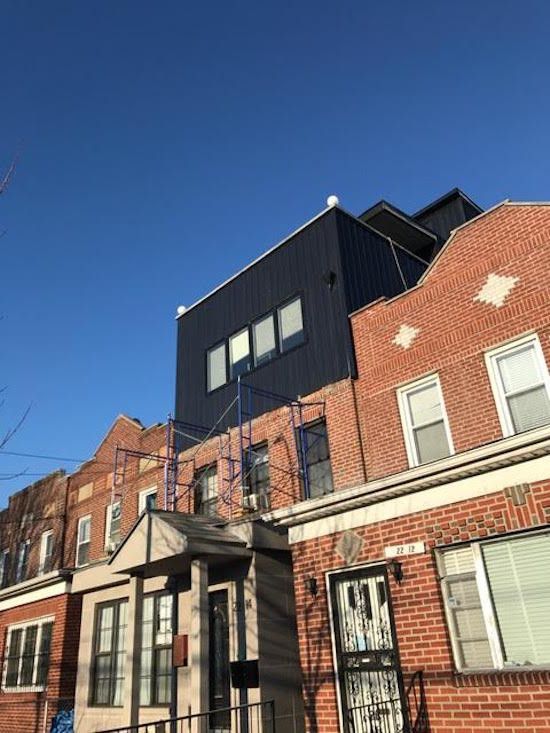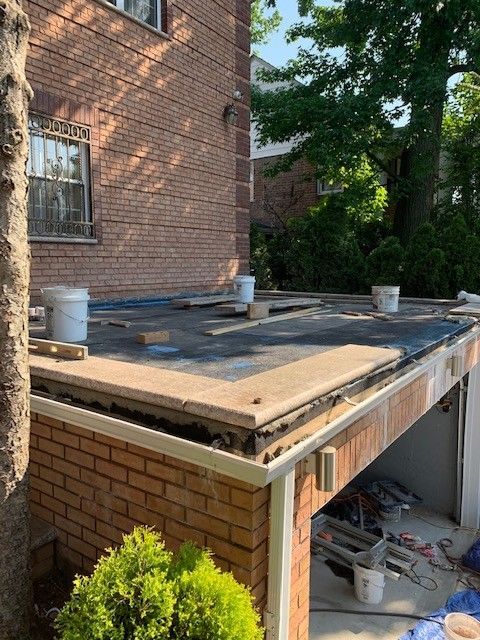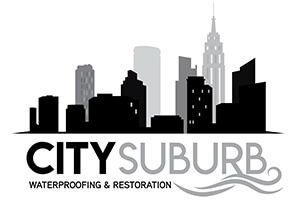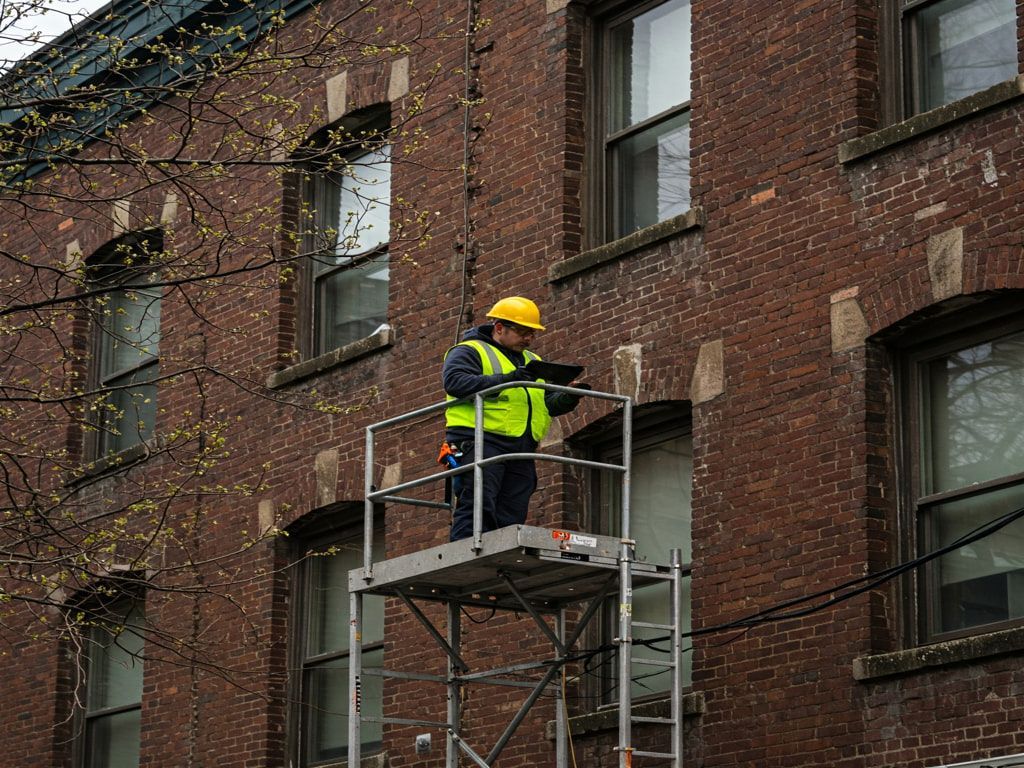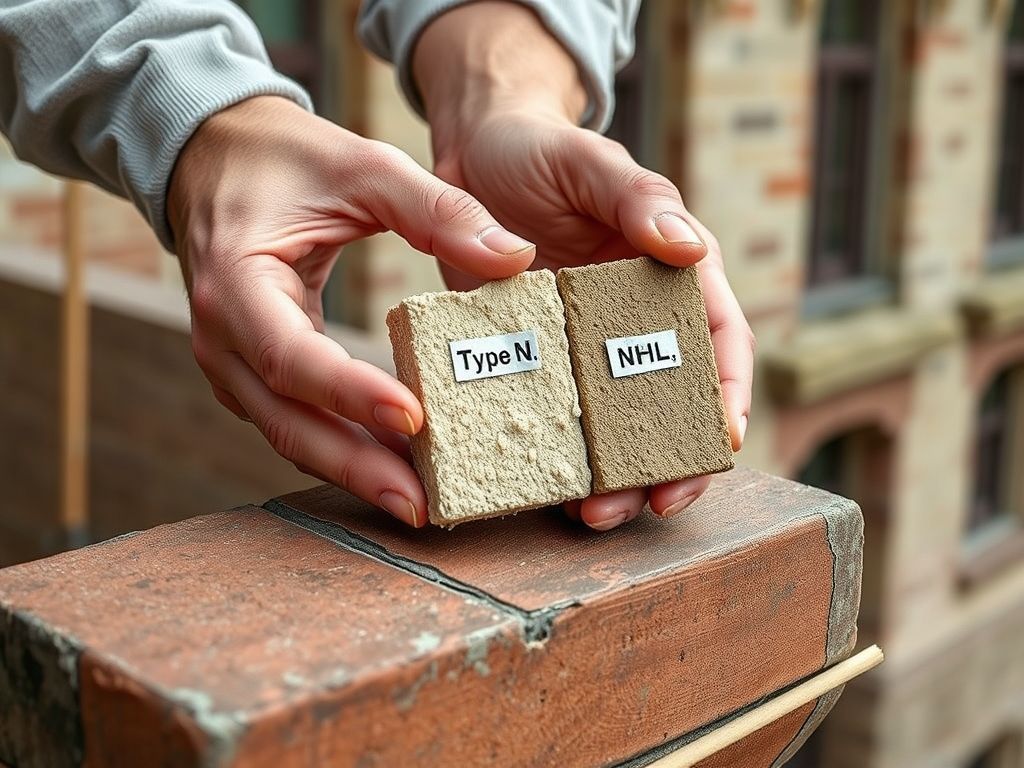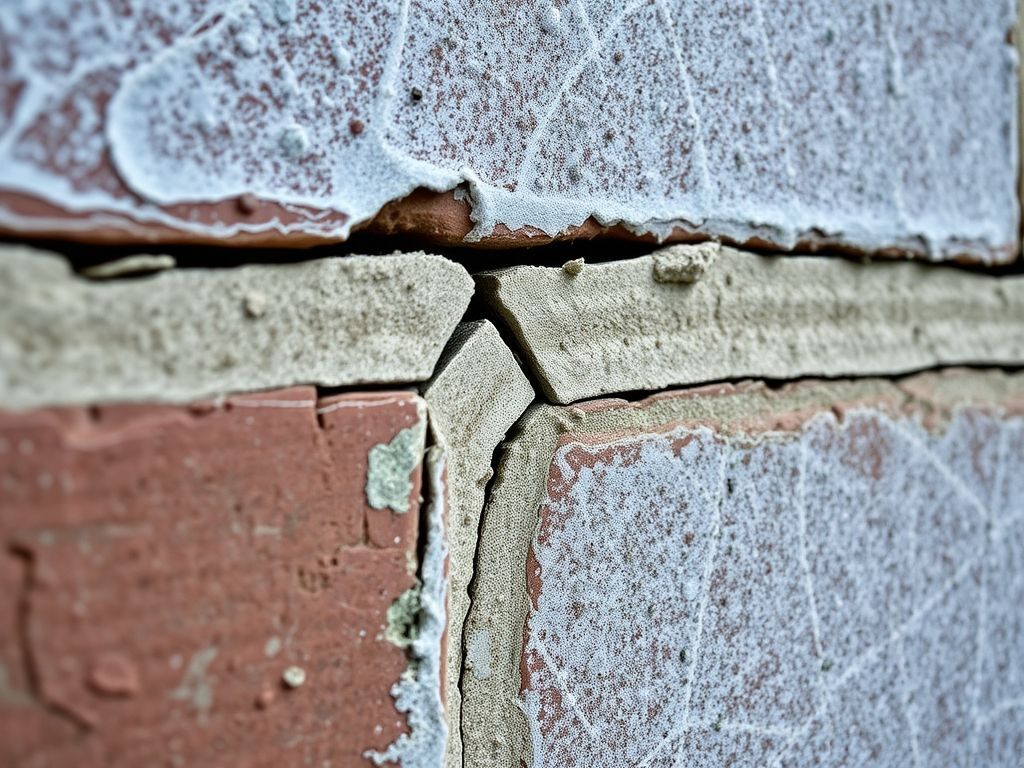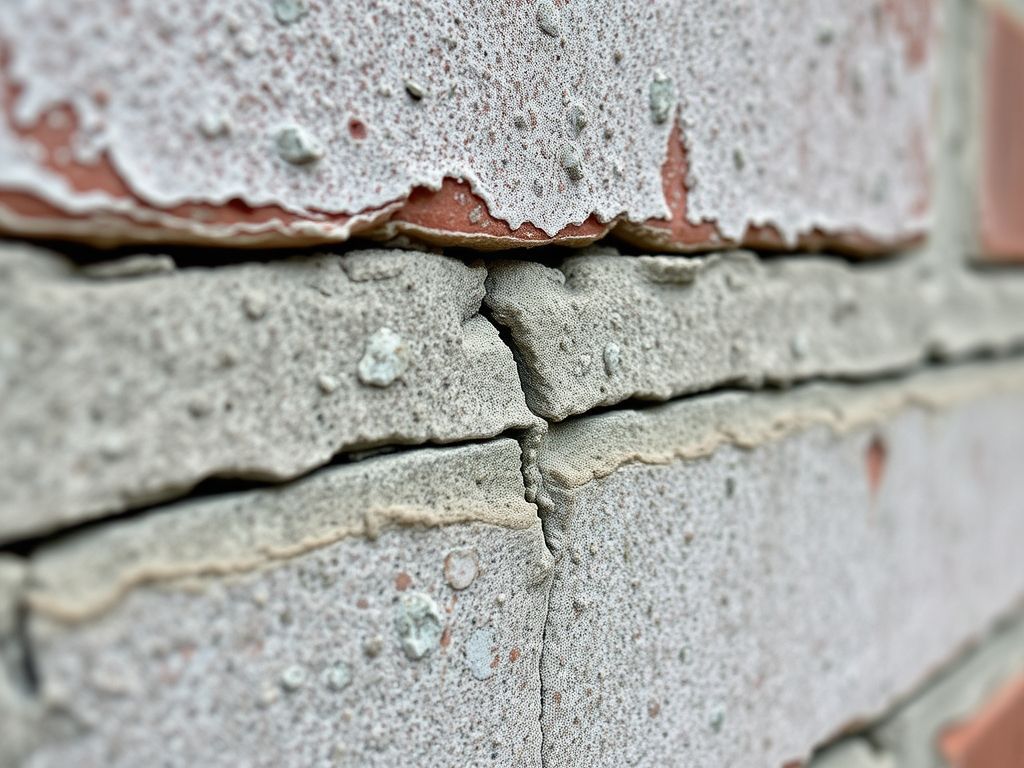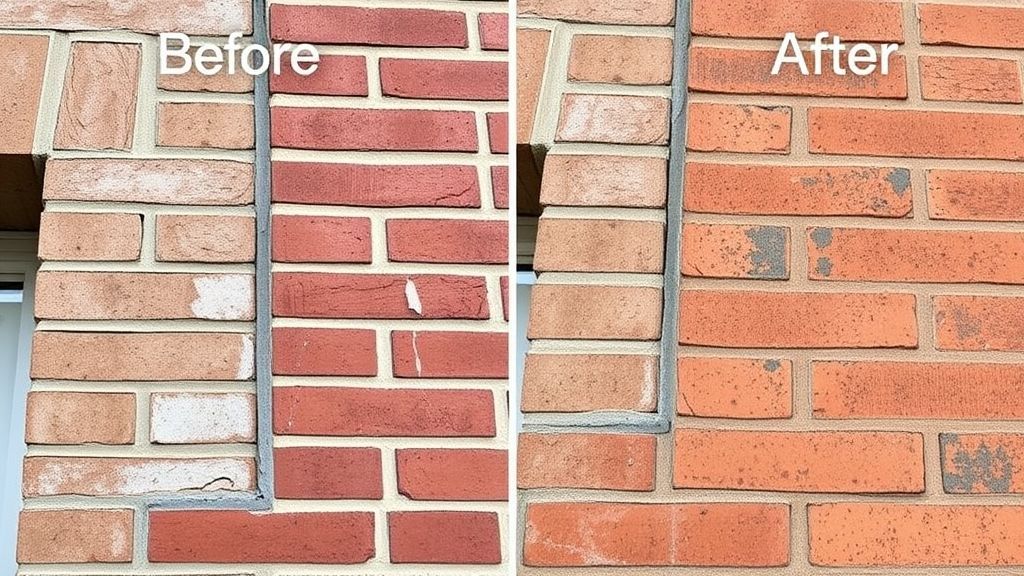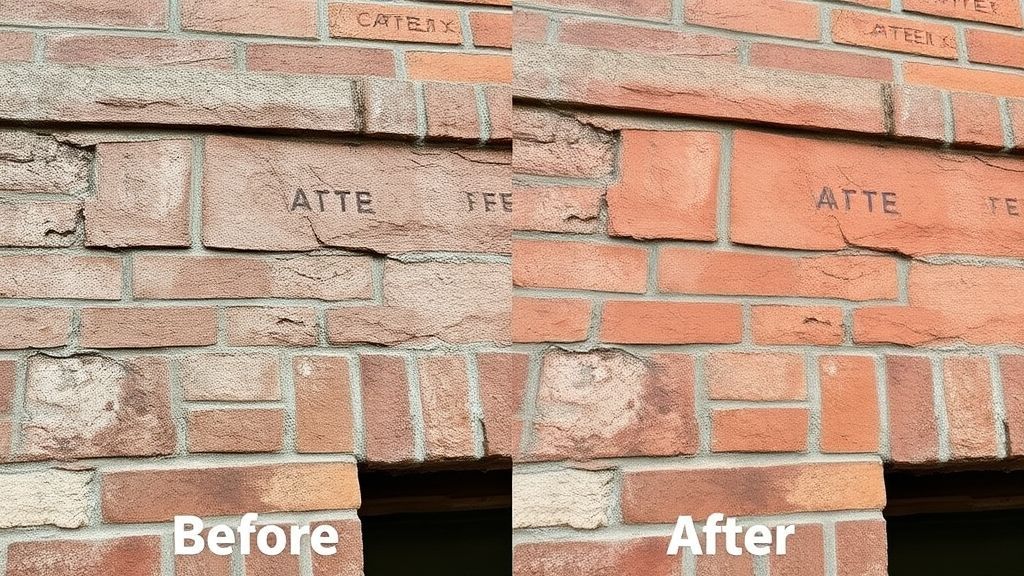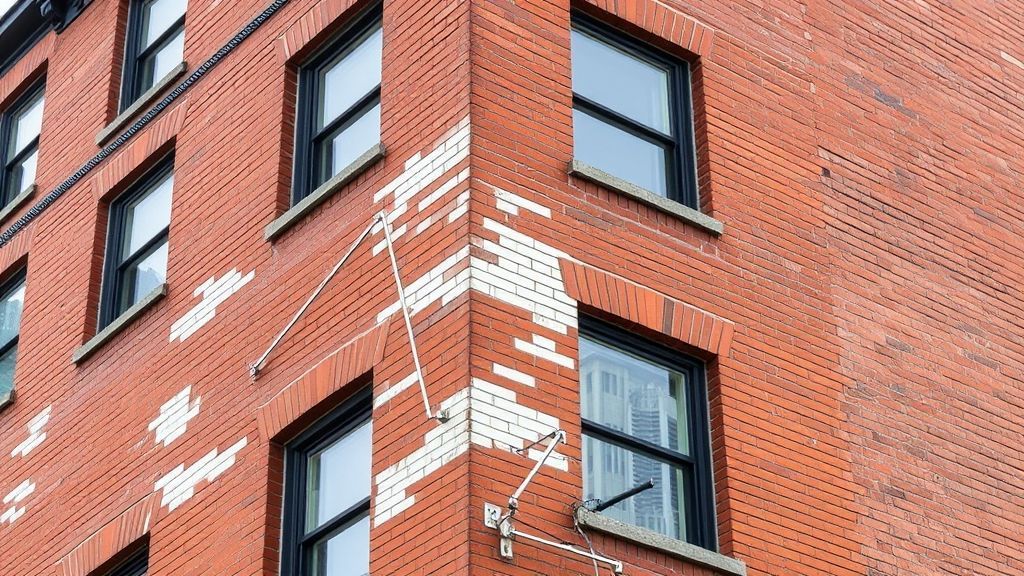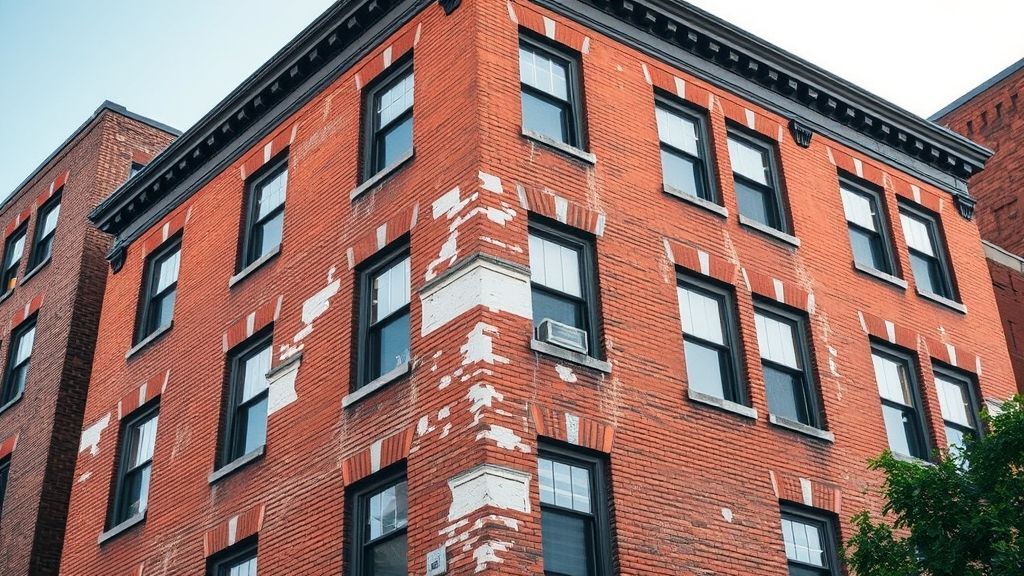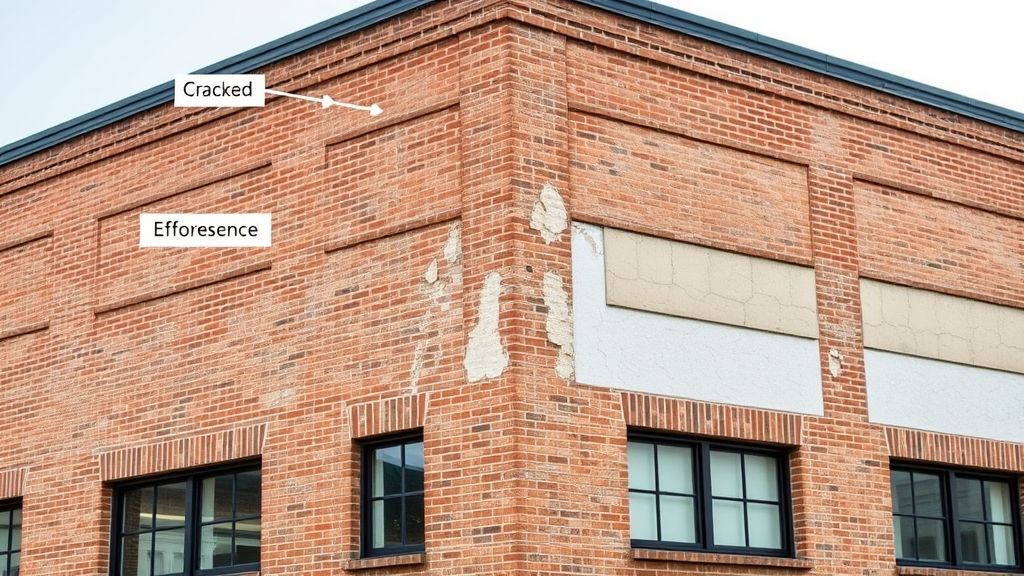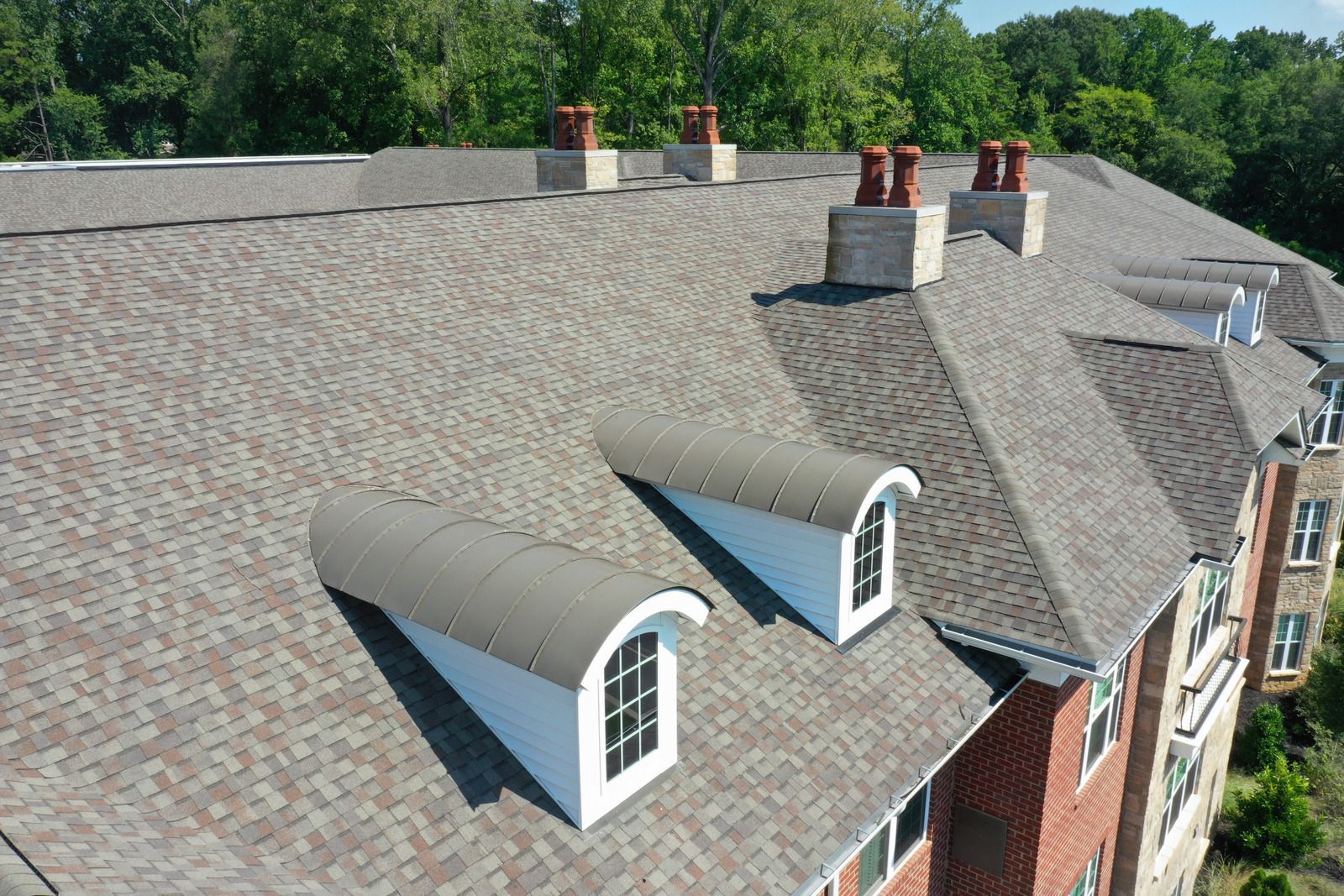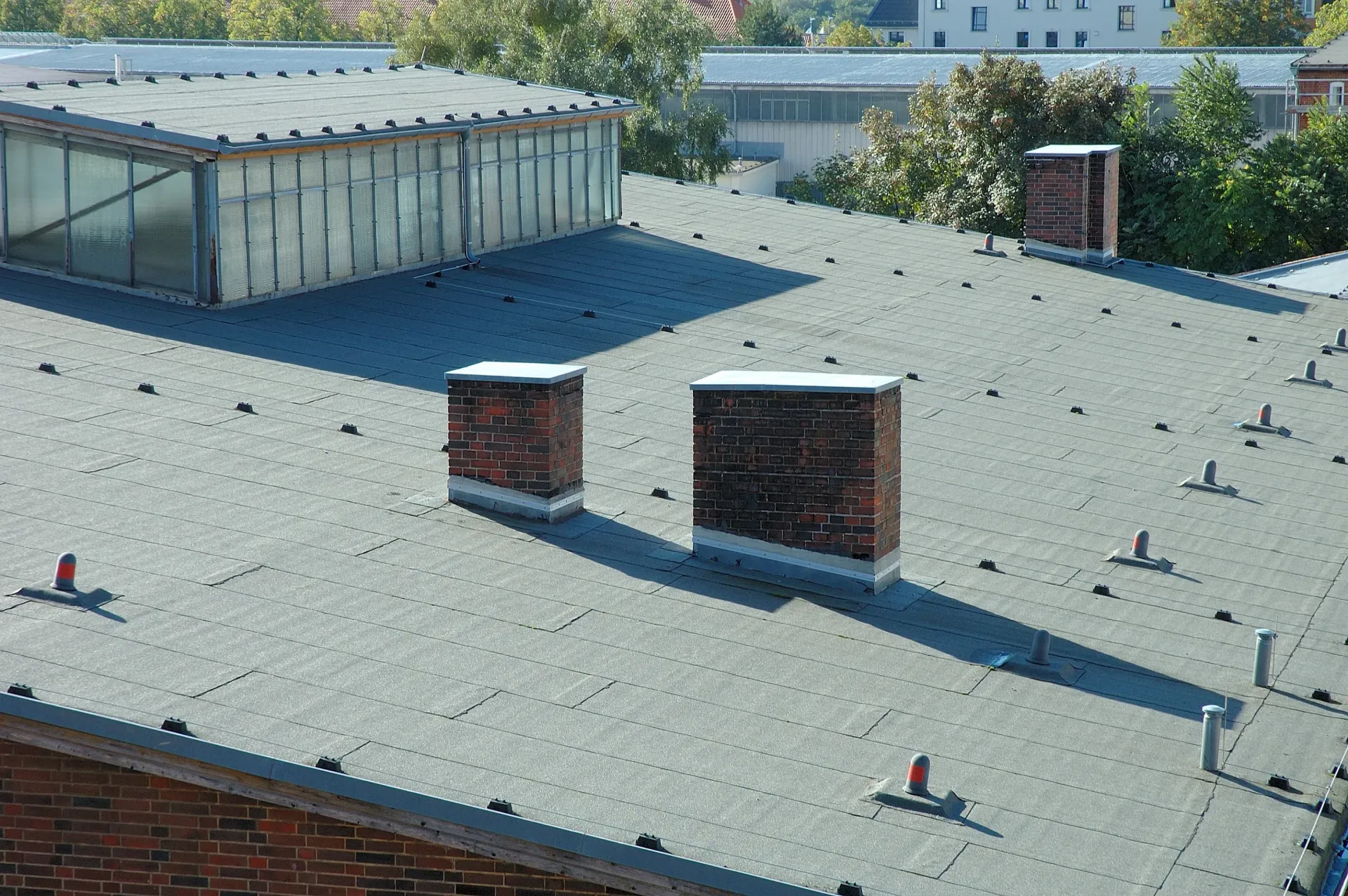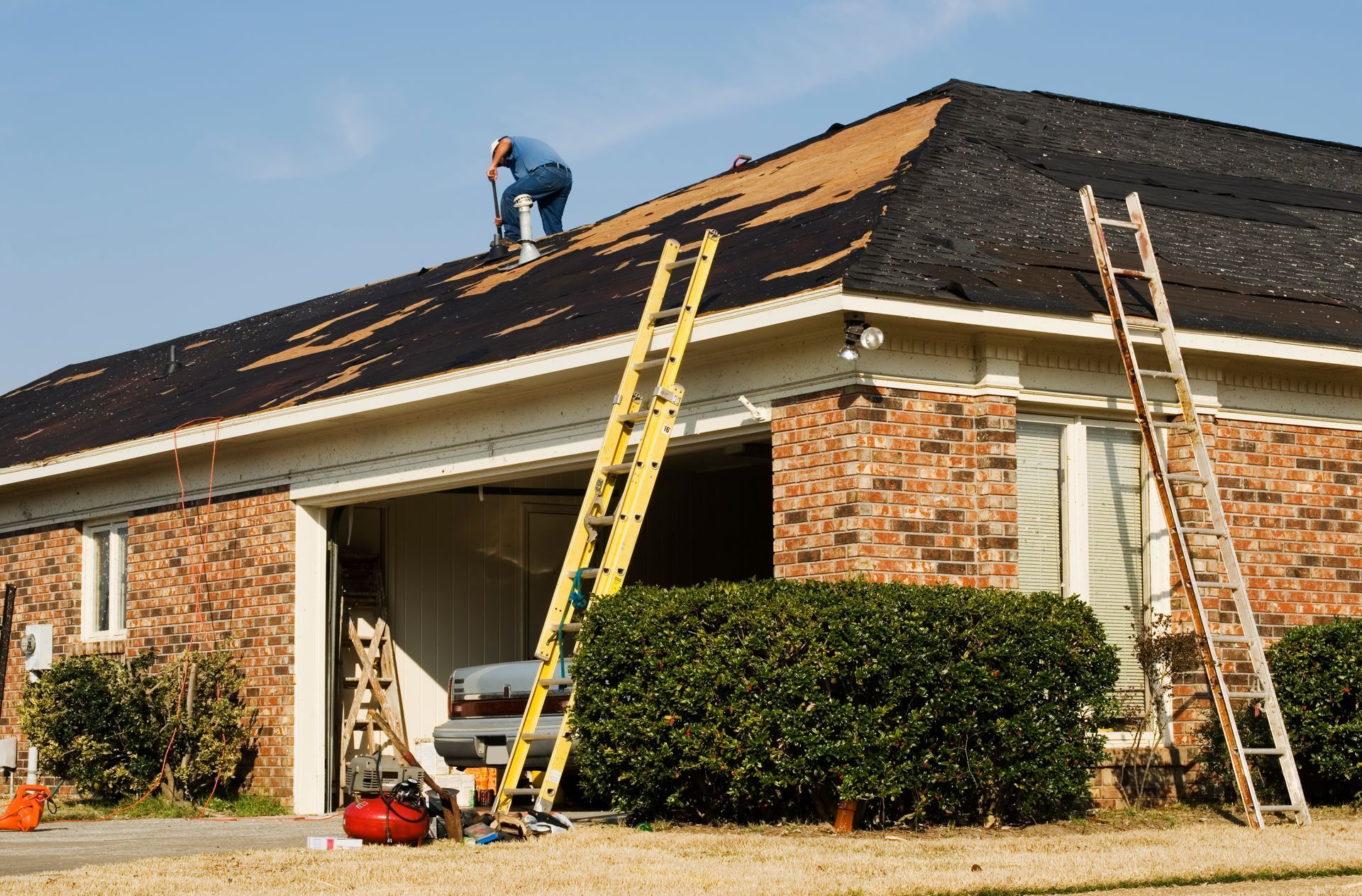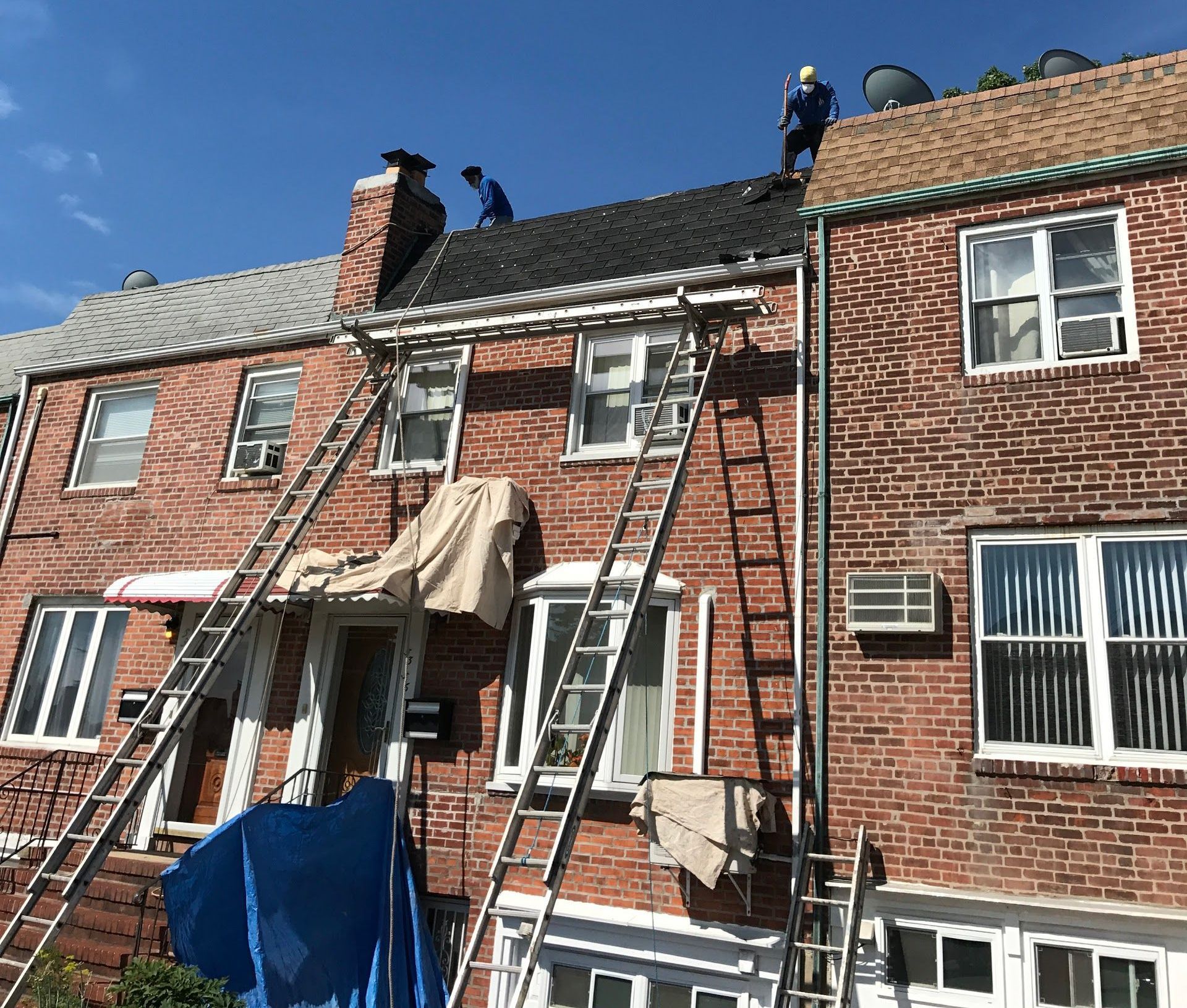Questions Every First-Time Client Should Ask Their Concrete Contractor
Article at a Glance:
- Verify credentials and experience: Ensure concrete contractors in Long Island, NY have proper licensing, insurance, and a proven track record with similar projects in your area.
- Get detailed project specifications: Obtain comprehensive documentation covering materials, site preparation, drainage solutions, and quality control measures.
- Understand costs and timeline: Request itemized pricing, clear payment terms, and a realistic project schedule that accounts for weather conditions and curing times.
- Review warranty and maintenance: Learn about warranty coverage, long-term maintenance requirements, and the contractor's process for handling any post-installation issues.
- Consider local factors: Account for Long Island's unique conditions, including coastal weather, soil types, and drainage needs that affect concrete work.
Making an informed choice when hiring a concrete contractor helps ensure your project's success. This guide walks you through essential conversations to have with potential contractors before making your decision.
Planning a concrete project? Whether it's a driveway, patio, or foundation work, finding the right concrete contractors in Long Island, NY helps ensure quality results. While cost and timing matter, understanding your contractor's qualifications and approach to the work proves equally important.
This guide walks you through key conversations to have with potential contractors, helping you make an informed choice for your project's success.
Essential Considerations:
- Evaluating contractor expertise and credentials
- Understanding project details and materials
- Getting clear on costs and payment terms
- Setting realistic timelines
- Learning about warranties and maintenance
Checking Contractor Expertise
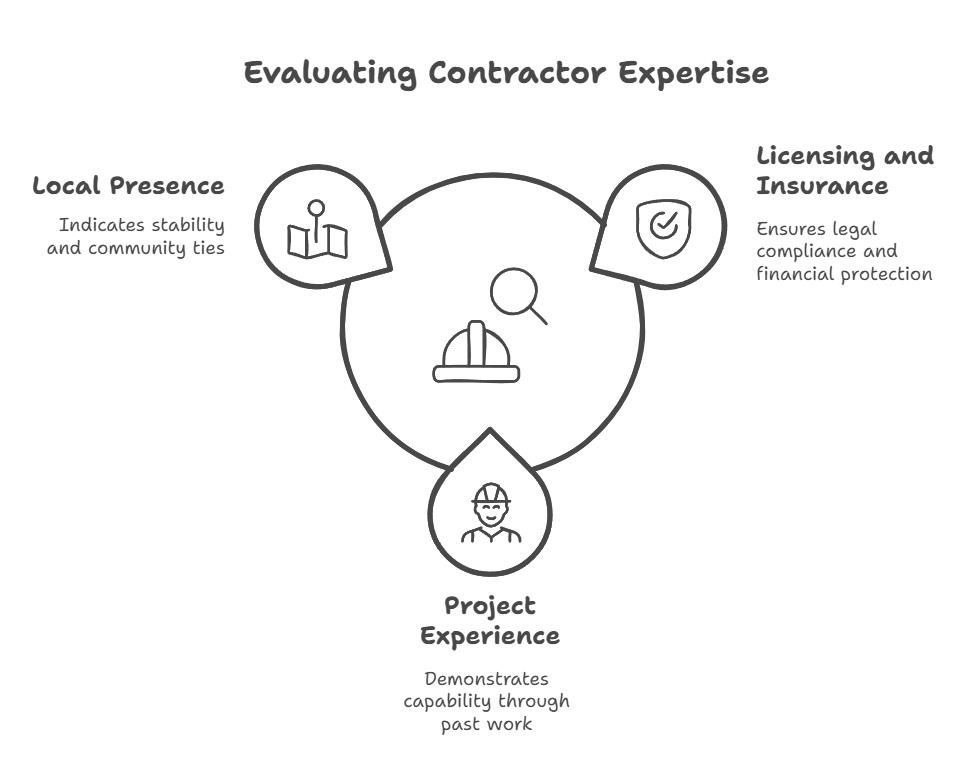
When searching for concrete contractors in Long Island, NY, start by understanding their background and capabilities.
License and Insurance Coverage
For larger projects in Nassau or Suffolk County, Long Island, contractors need proper licensing. Ask to see their:
- Home improvement license number (verify through your county's consumer affairs office)
- General liability insurance certificate (minimum $1M coverage)
- Workers' compensation insurance
- Disability insurance
If you live in a coastal area, discuss their experience with marine conditions and relevant insurance coverage for salt air exposure, humidity effects, and storm-related issues.
Experience with Similar Projects
"Tell me about similar projects you've completed nearby."
Look for:
- Work matching your project's scope
- Experience in your specific area
- Familiarity with local soil conditions
- Track record with building departments
"Can you share some examples of your work?"
- Ask to see photos of past projects
- Request references from recent clients
- Visit completed projects when possible
Local Presence
As experienced concrete contractors in Long Island, NY should demonstrate stability and accountability through:
- Office location and service area
- Relationships with local suppliers
- Better Business Bureau rating
- Reviews from past clients
Understanding Project Details
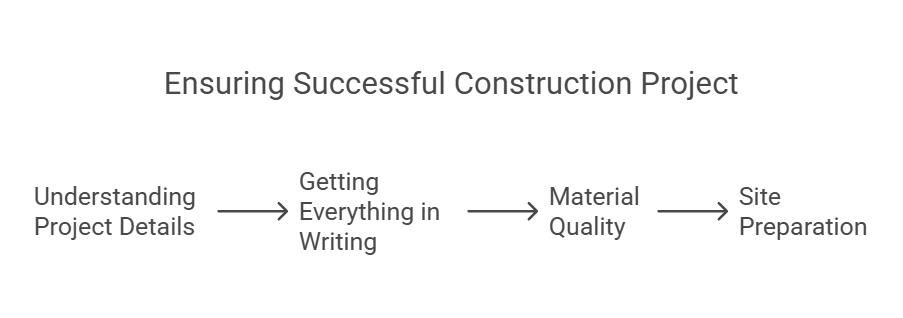
Clear project specifications help prevent misunderstandings and ensure the work meets your expectations.
Getting Everything in Writing
A solid contractor provides detailed documentation that includes:
- Written proposal outlining all work
- Sketches or drawings where needed
- Clear material specifications
- Site preparation requirements
Your documentation should spell out:
- Concrete thickness
- Reinforcement details
- Surface finish type
- How drainage will be handled
Material Quality
"Tell me about the concrete mix you'll use for my project."
Good contractors explain:
- Concrete strength rating (PSI)
- Air entrainment - tiny air bubbles that help concrete resist freeze-thaw damage
- Mix adjustments for local weather
- Material testing procedures
"How do you ensure consistent quality?"
- Learn about their concrete suppliers
- Ask about on-site testing methods
- Discuss curing techniques for your climate
Site Preparation
Good preparation prevents future problems. Ask:
- "Walk me through your site evaluation process"
- "How do you handle drainage?"
- "What sub-base material will you use?"
Discuss:
- Soil testing needs
- Proper slope for water runoff (minimum 1/8 inch per foot away from structures)
- Integration with existing drainage
- Special requirements for your property type
Costs and Payment
Clear financial discussions prevent surprises later.
Understanding the Quote
Request itemized pricing covering:
- Materials
- Labor
- Equipment
- Site preparation
- Required permits
"What might cause the final price to change?" Discuss variables like:
- Weather delays
- Soil conditions requiring extra work
- Material cost fluctuations
Payment Terms
"Tell me about your payment schedule."
Clarify:
- Initial deposit amount
- Progress payment timing
- Final payment conditions
- Accepted payment methods
Project Timeline and Management
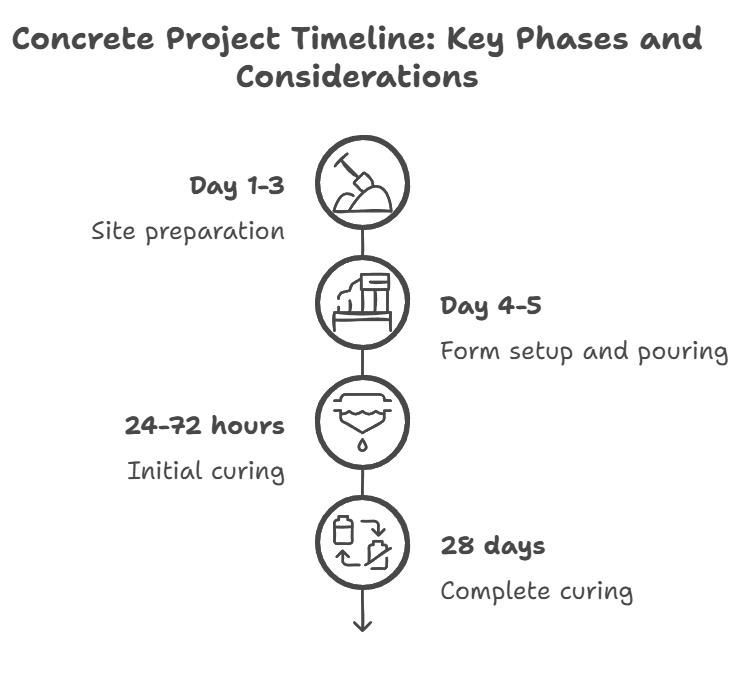
Weather and other factors affect concrete work timing. Let's explore what to expect.
Project Duration
"Walk me through the typical timeline for a project like mine."
Common phases include:
- Site preparation: 1-3 days
- Form setup and pouring: 1-2 days
- Initial curing: 24-72 hours
- Complete curing: 28 days
Factors affecting timing:
- Project size and complexity
- Required permits and inspections
- Crew availability
- Material delivery schedules
Weather Considerations
"How do you handle weather challenges?"
Discuss:
- Temperature guidelines for pouring (generally 50-85°F, though this varies by mix design)
- Rain delay procedures
- Cold weather protection methods
- Hot weather techniques
Local weather factors include:
- Coastal humidity effects
- Seasonal changes
- Storm impacts
- Salt air exposure
Progress Updates
"How will we stay in touch during the project?"
Establish:
- Communication methods
- Update frequency
- Quality checkpoints
- Problem notification process
Warranties and Maintenance
Most reputable concrete contractors offer comprehensive warranty coverage and maintenance guidance. Let's explore what you should know to protect your investment.
Warranty Details
"Tell me about your warranty coverage."
Discuss:
- Coverage length
- What's included
- What's excluded
- How to file a claim
Common coverage areas:
- Structural issues
- Surface problems
- Drainage concerns
- Settlement
Long-term Care
"How should I maintain my concrete?"
Learn about:
- Cleaning methods
- Sealing requirements
- Winter protection
- Regular maintenance timing
- Professional inspections
Problem Resolution
"What happens if issues come up after installation?"
Understanding the resolution process includes:
- Response time expectations
- Assessment procedures
- Standard repair methods
- Emergency service availability
Helpful Tips
Some often-overlooked points to consider:
Local Soil Conditions
Different areas have varying soil types that affect concrete work:
- Sandy coastal soils need different preparation
- Clay-rich areas require special drainage
- Some locations need soil stabilization
- Sub-base requirements vary by soil type
Drainage Considerations
Proper drainage protects your concrete investment:
- Surface slope requirements vary by project type
- Subsurface drainage may be needed
- Integration with existing systems matters
- Storm water management affects design
Documentation Tips
Keep records of:
- Written communications
- Progress photos
- Change orders
- Material delivery tickets
- Payment records
Quality Verification
Simple ways to verify concrete quality:
- Check mix design details
- Review batch tickets
- Watch placement techniques
- Ask about strength testing
Remember
Take time to:
- Talk with multiple contractors
- Check references
- Review documentation carefully
- Keep good records
- Ask questions if anything seems unclear
Your concrete project should provide years of service with proper installation and maintenance. By having these detailed conversations with concrete contractors in Long Island, NY, you'll better understand the process and make informed decisions for your project's success.
Frequently Asked Questions (FAQs)
Q: When do I need permits for concrete work?
A: Requirements vary by location and project size. Your contractor should know local requirements and handle permit processes when needed.
Q: How does weather affect concrete work?
A: Temperature, rain, and humidity influence concrete curing. While general guidelines exist, specific conditions may require adjustments to ensure proper curing.
Q: What's a reasonable warranty period?
A: Most contractors offer 1-2 years of structural coverage. Some provide longer warranties for major issues. Review coverage details carefully.
Frequently Unasked Questions (FUQs)
Q: How important is the sub-base preparation?
A: The sub-base provides crucial support for your concrete. Poor preparation often leads to cracking and settling, even with high-quality concrete. Each soil type needs specific preparation techniques.
Q: What makes some concrete mixes cost more than others?
A: Mix prices vary based on strength ratings, special additives, and performance features. While premium mixes cost more initially, they often provide better long-term value through increased durability and reduced maintenance.
Q: Why does concrete need time to cure?
A: Curing isn't just about drying - it's a chemical process where concrete develops strength. Rushing this process or improper curing conditions can reduce strength and durability, leading to surface problems and structural issues.
Q: What's the difference between control joints and cracks?
A: Control joints are purposefully placed to guide where concrete cracks as it shrinks during curing. Without proper joints, concrete will crack randomly. The key is planning joint placement for both function and appearance.
Q: How do seasonal changes affect concrete maintenance?
A: Concrete expands and contracts with temperature changes. Winter brings freeze-thaw cycles, while summer heat can cause rapid moisture loss. Each season requires specific maintenance approaches to protect your investment.
Expert Concrete Contracting You Can Trust
When it comes to concrete work, precision, durability, and expertise make all the difference. At City Suburb Inc., we bring years of industry experience, high-quality craftsmanship, and cost-effective solutions to every project—whether it’s a driveway, foundation, patio, or concrete flooring.
Serving Long Island, Queens, Brooklyn, the Bronx, and beyond, our licensed and insured team ensures your project is completed on time, within budget, and to the highest standards. We understand local soil conditions, weather challenges, and structural requirements, delivering solutions that stand the test of time.
✔ Expertly Engineered for Long-Term Performance
✔ Seamless Project Management from Start to Finish
✔ Comprehensive Warranty & Maintenance Support
Let’s Build Something That Lasts
Ensure your concrete project is in the hands of trusted professionals. Contact City Suburb Inc. today for a free consultation and experience the difference of working with industry leaders.
📞 Call Now: 718-849-8999
📍 Proudly Serving: Long Island, Queens, Brooklyn, Bronx, and More
📷
Explore Our Work on Instagram:
@citysuburbbuilders


